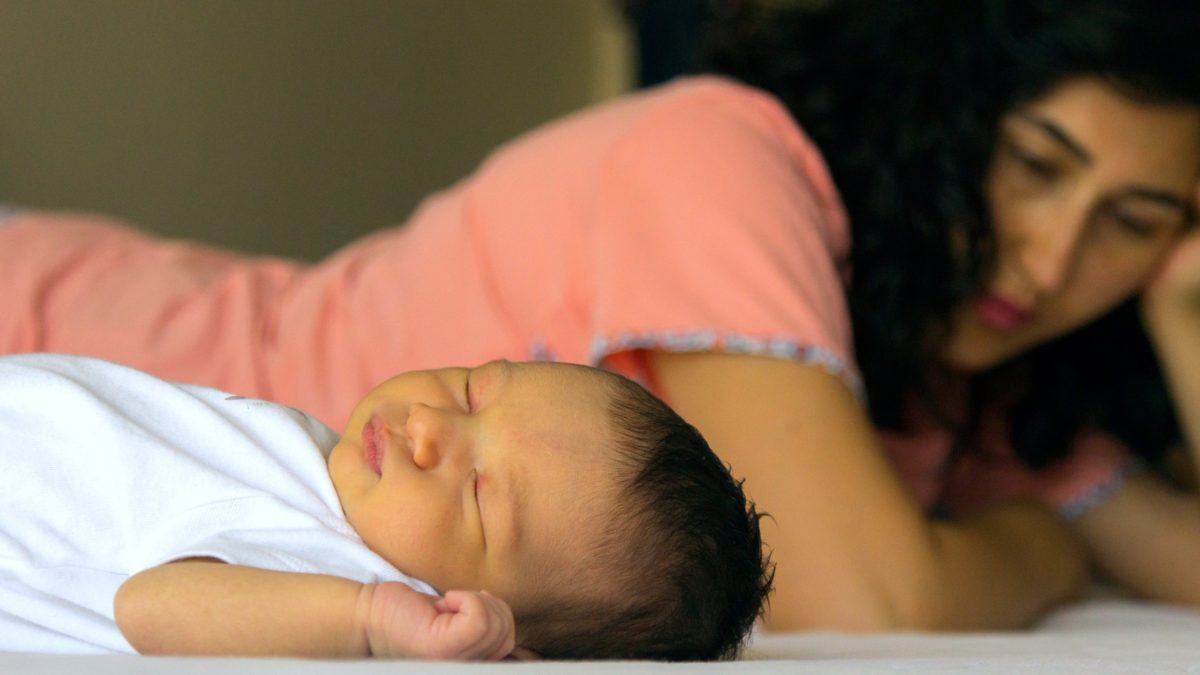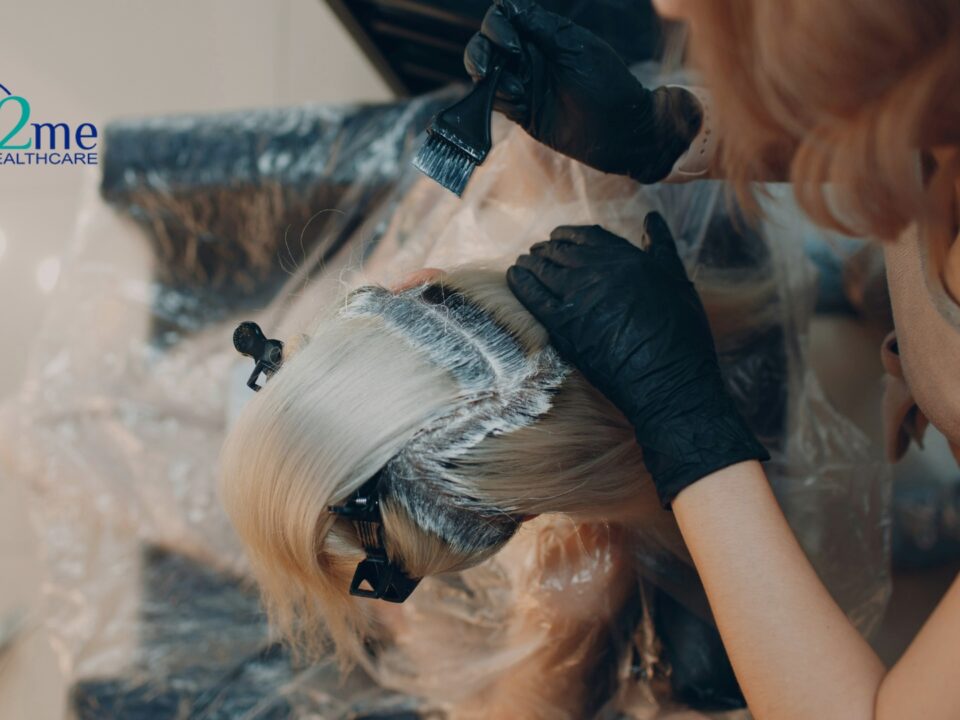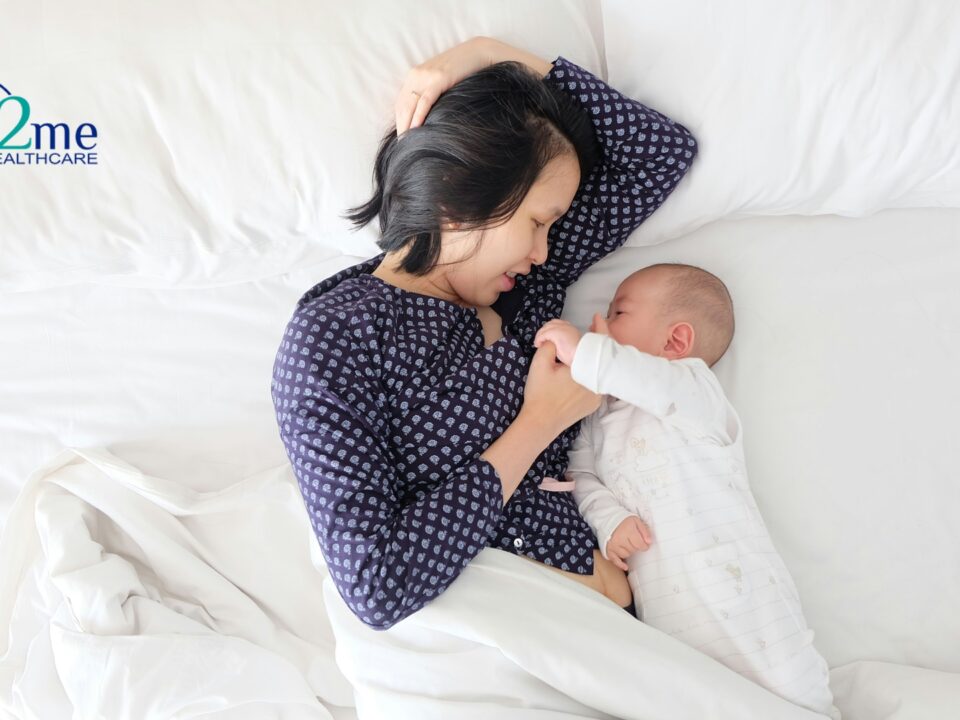Normalizing Postpartum Depression — Recognizing the Signs and Getting the Help You Need

What Happens Now? A Few Things to Expect After Giving Birth
February 11, 2022
Epidurals: Are They Right for You?
July 22, 2022For many women, giving birth is the happiest moment of their lives. And while having a newborn can certainly be a blissful experience, most new mothers find it challenging at first to manage the altered lifestyle and hormonal changes that come with having a baby.
However, some women experience more than occasional mood swings or typical stress. New mothers may have mild depression after delivery, while others experience a more severe form called postpartum depression (PPD).
What Is Postpartum Depression?
Postpartum depression is a medical condition that some women experience after having a baby. Every mother has a different experience with PPD, but symptoms often include anxiety, sadness, and irritability. Often these feelings are so overwhelming that new mothers have trouble taking care of themselves and the baby. In most cases, PPD begins 1 to 3 weeks after giving birth but can occur up to eight weeks after delivery.
If you’re suffering from PPD, know that you are not alone. PPD can happen to any woman, regardless of their age, previous pregnancies, or socioeconomic status. In fact, about 1 in 7 women experience PPD in the year after giving birth. Women who experience PPD after one pregnancy are more likely to experience it again if they choose to have another child.
Postpartum depression can make new mothers feel broken or inadequate, but it is entirely normal for women to experience these feelings as their bodies undergo hormonal changes. And even if you haven’t given birth, you can still suffer from PPD if you have had a miscarriage, adopted a child, or weaned a child from breastfeeding. If you’re feeling depressed after pregnancy or any of these events, it’s important that you’re able to recognize the symptoms of PPD and get the help that you need.
Recognizing Postpartum Depression
Women with PPD may experience some or all of the following symptoms. Regardless of what you’re feeling, your emotions are valid. However, it is important that you are able to recognize and accept these symptoms so that you can get the help you need.
The Inability or Unwillingness to Make Decisions
Almost every woman that suffers from postpartum depression struggles with anxiety. In many cases, this anxiety can be so extreme that it seems debilitating. The primary difference between other anxiety disorders and PPD is that those with PPD find it challenging to make decisions, particularly regarding the baby. This could manifest itself as anxiety about feeding or holding the baby because they fear doing something wrong as new mothers.
Frequent Emotional Outbursts or Crying
Depressive feelings accompany all symptoms of PPD, but the presence of PPD makes mothers more sensitive to the effects. When a person is clinically depressed, the chemicals within their brain change. For instance, serotonin usually stabilizes a person’s mood, but in women with PPD, this chemical is often out of balance. When this depression is accompanied by the stress of being a new mother, women may experience frequent fits of crying, sadness, and other forms of erratic behavior.
Insomnia
Given the demands of caring for a newborn infant, many new mothers don’t get enough sleep. Although feeding a baby throughout the night can keep mothers from getting a full eight hours, new mothers should generally be able to fall asleep on their own when the opportunity strikes. However, women with PPD often develop insomnia, which makes it impossible for them to fall asleep or stay asleep, even when the baby is resting.
Thoughts of Harming Yourself or the Baby
If you’re having thoughts of hurting yourself or your baby, it can be scary. Just know that you’re not alone in these experiences. Many women with PPD have similar thoughts, which are medically referred to as “intrusive thoughts.” Those suffering from PPD are often too ashamed to admit to these impulses, but know that psychiatrists and licensed clinicians are here to help you through these trying times. If you’re experiencing intrusive thoughts, speak with your healthcare provider about establishing a treatment plan to navigate these emotions with the right tools.
Intense Anger and Rage
When most people think of PPD, they imagine new mothers experiencing despair, crying fits, and hopelessness. But a little-known symptom of PPD is anger, irritability, frustration, and sometimes rage. If you’re struggling with PPD, you may direct these feelings towards your baby or partner. You may express this anger through yelling, arguing, or feeling hostile toward others. Sometimes, these feelings are so intense that even loving mothers fear that their anger could spiral out of control and lead them to unintentionally harm the baby.
Resources That Can Help
Although PPD is a valid and treatable condition, many women suffering from PPD often deny the support they need due to the stigma attached to this illness. In fact, 50% of women with PPD never seek professional help. Nobody wants to feel like they’re failing as a mother. However, attempting to ignore these feelings can cause them to worsen. The guilt and shame can be overwhelming for new mothers with PPD, but know that help is always available when you’re ready.
Feelings of isolation often accompany PPD, so support groups may help alleviate some of your symptoms. When you’re comfortable, don’t hesitate to seek the help of peers and professionals who have experience treating this condition. Postpartum Support International has resources to help you find a qualified perinatal therapist.
Also, be open and honest with your healthcare provider about your symptoms. They’re here to help you! Many women with PPD go on to live healthy, happy lives. Remember, PPD doesn’t make you a bad mother, and you deserve to get the treatment you need to enjoy time with your growing family.
2Me Healthcare
Having a baby comes with many stresses and hormonal changes, but there are resources available to help you handle these feelings. Working with qualified, experienced doctors is an important part of your journey. If you’re in need of a knowledgeable healthcare provider that prioritizes your needs as a woman with PPD, contact 2Me Healthcare today. We’re ready to support, educate, and care for you throughout your pregnancy journey, including the adjustment period after you give birth.




